In the bustling world of kitchen appliances, the air fryer has emerged as a game-changer, offering a healthier alternative to traditional frying methods. As consumer demands evolve, so too does the industry that produces these convenient kitchen gadgets. Among the key players in this sector are Turnkey Original Equipment Manufacturers (OEMs) specializing in air fryers with the prestigious UL certification. This certification is not just a seal of approval—it’s a promise of safety, quality, and reliability that can make or break a brand’s reputation. Let’s delve into the intricate details of what it takes to achieve this certification and why it matters in the competitive air fryer market.
Introduction to Turnkey Solutions in Air Fryer Manufacturing
Turnkey solutions have become a cornerstone in the fast-paced world of air fryer manufacturing. Imagine a scenario where you’re a budding entrepreneur or an established brand looking to enter the market with a state-of-the-art air fryer. You want to ensure quality, compliance, and a quick time-to-market, but the complexities of production, certification, and logistics can be overwhelming. This is where turnkey solutions step in, offering a complete, hassle-free package that takes the guesswork out of manufacturing.
When we talk about turnkey solutions, we’re referring to a comprehensive service that includes design, prototyping, manufacturing, quality control, certification, and distribution. In the context of air fryer manufacturing, this means you get a fully operational, certified product without having to worry about the intricacies of each step. Let’s dive deeper into what this entails.
Design and Engineering: The turnkey process typically begins with a design phase. Experts in the field will collaborate with you to create a product that meets your brand’s vision and appeals to consumers. This involves not just aesthetic considerations but also functionality and safety standards. The design team ensures that the air fryer is user-friendly, energy-efficient, and equipped with the latest technologies to keep up with market trends.
Prototyping: Once the design is approved, the next step is to create a prototype. This is a crucial phase that allows you to test the product’s design and functionality before moving to mass production. A reputable turnkey provider will have skilled engineers and technicians to bring your concept to life and make any necessary adjustments to ensure the final product is perfect.
Manufacturing: The heart of the turnkey solution lies in the manufacturing process. Here, state-of-the-art equipment and skilled labor are used to produce air fryers that are not only efficient but also durable. Quality materials are sourced, and the manufacturing process is designed to minimize waste and maximize efficiency, ensuring that you receive products that meet the highest standards.
Quality Control: A turnkey solution includes rigorous quality control measures to ensure that every air fryer that leaves the production line is up to par. This includes inspections at various stages of the manufacturing process, from incoming raw materials to the final product. By adhering to strict quality control, turnkey providers guarantee that the end product is reliable and safe.
Certification: One of the most significant aspects of a turnkey solution is the inclusion of certifications. In the case of air fryers, one such certification is the UL (Underwriters Laboratories) certification. This certification is a mark of safety and quality, assuring consumers that the product meets stringent safety standards. The turnkey provider takes care of all the necessary testing and paperwork to get this certification, saving you time and effort.
Logistics and Distribution: The turnkey service doesn’t end at the production line. It also includes logistics and distribution. From warehousing to shipping, the provider ensures that your air fryers are stored and transported in optimal conditions. This is especially important for products that need to maintain their temperature or integrity during transit.
Cost and Time Efficiency: Perhaps the most appealing aspect of turnkey solutions is the cost and time efficiency they offer. By handling every aspect of the manufacturing process, turnkey providers can streamline operations and reduce costs. This means you can get your product to market faster without the need for a significant upfront investment in equipment, facilities, or skilled labor.
Flexibility and Scalability: Turnkey solutions are also flexible and scalable. Whether you’re looking to produce a small batch of air fryers for a test market or scale up to meet high demand, a turnkey provider can adjust their services to accommodate your needs. This flexibility allows you to respond quickly to market demands and seize opportunities as they arise.
In conclusion, turnkey solutions in air fryer manufacturing provide a one-stop-shop approach to bring your product from concept to market. With expert design, efficient production, rigorous quality control, and comprehensive certifications like UL, these solutions ensure that you can focus on what you do best – growing your business. By partnering with a turnkey OEM, you gain peace of mind knowing that every detail is taken care of, from the initial design to the final delivery of your certified air fryers.
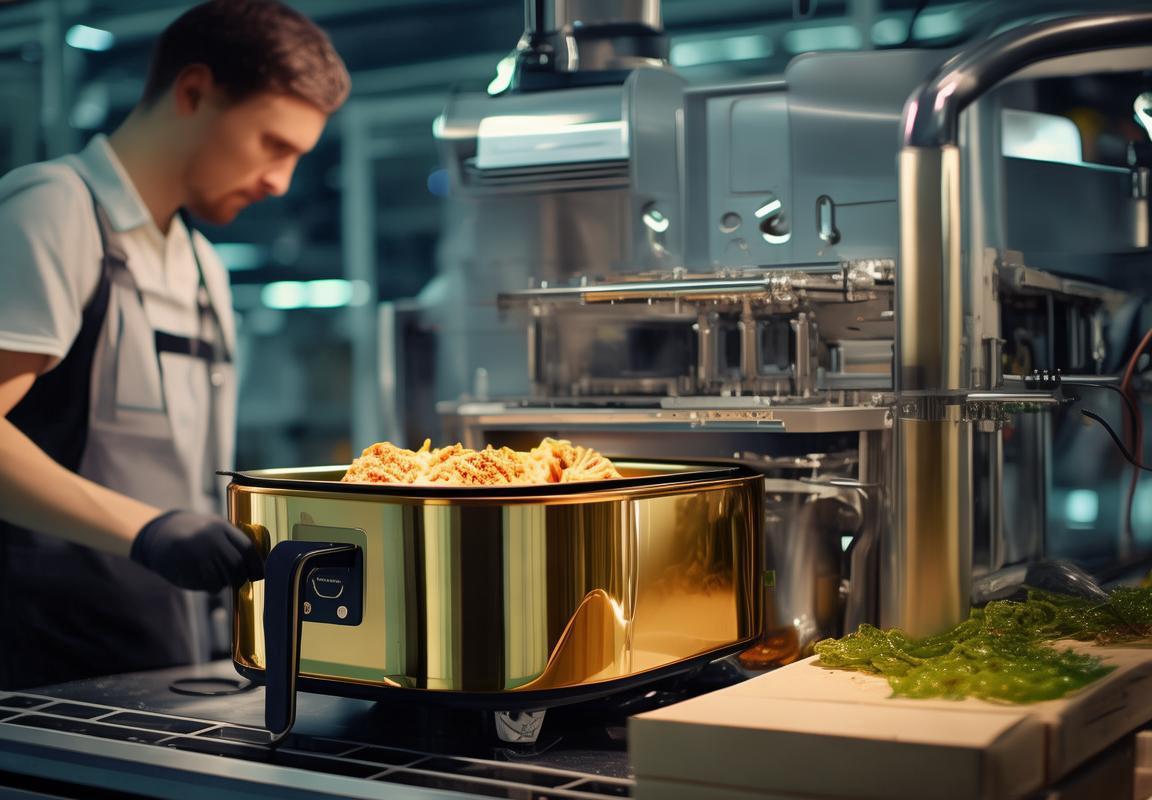
Understanding UL Certification: A Necessity for Safety and Trust
In the bustling world of consumer electronics, the importance of safety and trust cannot be overstated. One key aspect that ensures both for electrical appliances, such as air fryers, is the presence of certifications. Among these, the UL (Underwriters Laboratories) certification stands out as a beacon of quality and safety. Understanding what this certification entails is crucial for manufacturers, consumers, and anyone involved in the air fryer market.
The UL certification is a mark of approval that signifies a product has met stringent safety standards. It is a globally recognized symbol that reassures users of a product’s reliability. For air fryers, which involve high temperatures and electrical components, this certification is not just a formality but a necessity.
When an air fryer carries the UL mark, it means that the device has been tested and evaluated by independent experts to ensure it complies with a comprehensive set of safety requirements. These include electrical safety, fire resistance, and the prevention of electrical shock. The process involves rigorous testing of the air fryer’s materials, design, and manufacturing process to guarantee that it will perform safely under normal and potentially hazardous conditions.
One of the key aspects of the UL certification is the evaluation of the air fryer’s heating elements. These components must be designed to prevent overheating, which is a common cause of fires in kitchen appliances. The certification process also scrutinizes the insulation to ensure that it can withstand high temperatures without failing, thus reducing the risk of burns and electrical hazards.
Moreover, the certification process includes examining the air fryer’s electrical wiring and components for any potential faults or weaknesses. This is crucial for preventing electrical shocks and fires, which can have catastrophic consequences. The UL certification also covers the appliance’s structure, ensuring that it is stable and durable, which is essential for user safety.
For manufacturers, obtaining the UL certification for their air fryers is not just about compliance; it’s a competitive advantage. It allows them to differentiate their products from those that lack this important safety mark. Consumers, on the other hand, can rest assured that a UL-certified air fryer has been thoroughly tested and deemed safe for use in their homes.
The trust that comes with the UL certification is invaluable. In an era where product recalls and safety concerns are all too common, having a product that has passed this rigorous testing can be a significant selling point. It’s not just about meeting regulations; it’s about building a reputation for excellence and reliability.
The certification process also involves regular follow-up inspections and audits to ensure that the manufacturer continues to adhere to the high standards set by UL. This ongoing oversight is crucial for maintaining the integrity of the certification and ensuring that the air fryer remains safe throughout its lifespan.
For consumers, the UL certification is a source of confidence. It means that the air fryer has been tested for various potential hazards, including electrical, thermal, and mechanical risks. This peace of mind is particularly important for families with young children, who might be more susceptible to accidents involving kitchen appliances.
In the realm of air fryer manufacturing, the UL certification is a cornerstone of trust. It not only ensures that the product meets the highest safety standards but also that the manufacturer is committed to producing a reliable and safe appliance. As the market for air fryers continues to grow, the importance of this certification will only become more pronounced.
In conclusion, the UL certification is more than just a label on an air fryer; it’s a symbol of safety, quality, and reliability. It’s a testament to the commitment of manufacturers to provide their customers with products that they can trust. For consumers, it’s a reassurance that the air fryer they’ve chosen is not just a kitchen gadget but a safe addition to their home.

The Role of OEMs in the Air Fryer Market
In the bustling world of consumer electronics, the role of Original Equipment Manufacturers (OEMs) in the air fryer market is pivotal. These companies play a critical part in shaping the landscape of kitchen appliances by manufacturing products under the brand names of other firms. Here’s a closer look at how OEMs contribute to the thriving air fryer market.
OEMs are the backbone of the air fryer industry, bringing to life the innovative designs and advanced technologies that consumers have come to expect. They act as the unseen architects, designing and constructing the devices that often carry the reputation and brand value of well-known retailers. This collaborative relationship allows companies to focus on marketing and sales while leaving the intricacies of manufacturing to the experts.
The expertise of OEMs lies in their ability to mass-produce air fryers efficiently and cost-effectively. They have the resources and knowledge to source high-quality components, manage supply chains, and maintain rigorous quality control. This ensures that the final product not only meets but often exceeds the standards set by the brand itself.
One of the key roles of OEMs is to stay abreast of the latest trends and technologies. They are constantly researching and developing new features that can enhance the user experience, from improved heating elements and non-stick coatings to smart capabilities that allow for remote monitoring and control. This commitment to innovation is what keeps the air fryer market dynamic and appealing to consumers.
When it comes to customization, OEMs excel. They can tailor their manufacturing processes to meet the specific requirements of different brands, whether it’s a sleek design, a unique color scheme, or incorporating brand-specific marketing elements. This flexibility is a major advantage, as it allows manufacturers to differentiate their products in a crowded market.
Another crucial aspect of OEMs in the air fryer market is their capacity to handle large-scale production. This is essential for brands that aim to capture a significant share of the market. OEMs have the infrastructure to produce thousands or even millions of units, ensuring that retailers can meet consumer demand without delays.
Quality control is a non-negotiable aspect of OEM operations. They adhere to strict quality assurance protocols to ensure that every air fryer that leaves their facility is safe, reliable, and meets international safety standards. This includes rigorous testing for electrical components, heating elements, and overall durability.
Innovation isn’t just about new features; it’s also about sustainability. OEMs are increasingly focusing on eco-friendly practices, from sourcing recycled materials to optimizing energy efficiency. This not only appeals to environmentally conscious consumers but also helps brands build a positive reputation.
Moreover, OEMs often provide additional services that add value to the manufacturing process. This can include packaging design, branding integration, and even post-sales support. By handling these aspects, OEMs free up their partners to focus on other areas of their business.
The competitive nature of the air fryer market requires OEMs to be agile and responsive. They must be able to pivot quickly to address new challenges, such as regulatory changes or emerging market demands. This adaptability is essential for survival in an industry that is constantly evolving.
Lastly, OEMs facilitate global expansion for their partners. By producing air fryers that comply with international standards, they enable brands to enter new markets with confidence. This global reach is invaluable for companies looking to grow their customer base beyond local boundaries.
In summary, OEMs are integral to the air fryer market. They bring together expertise, scale, and innovation to create products that cater to consumer needs while upholding the brand values of their partners. Their role is multifaceted, encompassing everything from design and production to quality control and sustainability, all of which contribute to the success of air fryers in the marketplace.

Key Features of a Turnkey Air Fryer with UL Certification
In the competitive world of kitchen appliances, a turnkey air fryer with UL certification stands out not just for its compliance with stringent safety standards, but also for its array of essential features that cater to both consumers and businesses. Here’s a closer look at what makes such a product truly remarkable:
The sleek, modern design of the turnkey air fryer not only complements any kitchen decor but also ensures a user-friendly experience. The exterior is typically made of durable materials like stainless steel or high-quality plastic, which not only look appealing but also withstand the test of time and frequent use.
Equipped with an intuitive interface, these air fryers are a breeze to operate. Digital displays and easy-to-read controls make it simple for users to select the desired cooking setting. Some models come with touch-sensitive buttons for a clean, minimalist look, while others offer a dial or buttons for setting the temperature and time.
One of the standout features of a turnkey air fryer is its rapid heating capabilities. These appliances are designed to reach optimal cooking temperatures quickly, reducing the preheating time and ensuring that food is cooked efficiently. This feature is particularly valuable for busy households or commercial kitchens looking to save time without compromising on quality.
A crucial aspect of safety is the inclusion of overheat protection. This feature automatically shuts off the appliance when the internal temperature exceeds a safe threshold, preventing accidents and potential damage to the unit. Similarly, a built-in timer ensures that the cooking process is not left unattended, offering peace of mind to users.
Efficiency is key in an air fryer, and a turnkey model with UL certification often boasts an energy-saving mode. This feature allows the appliance to use less electricity, which is not only beneficial for the environment but also for the consumer’s electricity bill.
The capacity of the turnkey air fryer is another important consideration. Models vary in size, ranging from small countertop units suitable for individual portions to larger capacities that can cater to families or commercial use. The capacity often includes a removable basket that is easy to clean and fits a variety of food sizes, from snacks to larger pieces of meat.
In terms of versatility, these air fryers often come with various cooking programs and presets. These include options for frying, roasting, baking, and even defrosting, which means that users can enjoy a wide range of recipes without the need for additional kitchen equipment.
A well-designed turnkey air fryer will also include a cool-touch handle on the exterior. This ensures that users can safely remove the basket without burning their hands, even after the cooking cycle is complete.
The internal components are also a testament to the quality of the appliance. High-quality heating elements ensure even cooking, while a non-stick interior makes cleaning a breeze. Many models come with a drip tray to catch any excess oil or fat, which simplifies the cleaning process even further.
Finally, a turnkey air fryer with UL certification often comes with a comprehensive warranty. This warranty reflects the manufacturer’s confidence in the appliance’s durability and performance, providing buyers with peace of mind and assurance of after-sales support.
In summary, the key features of a turnkey air fryer with UL certification encompass a blend of design, safety, efficiency, and versatility. These appliances are not just kitchen gadgets; they are investments in healthy, delicious cooking that is both convenient and sustainable.
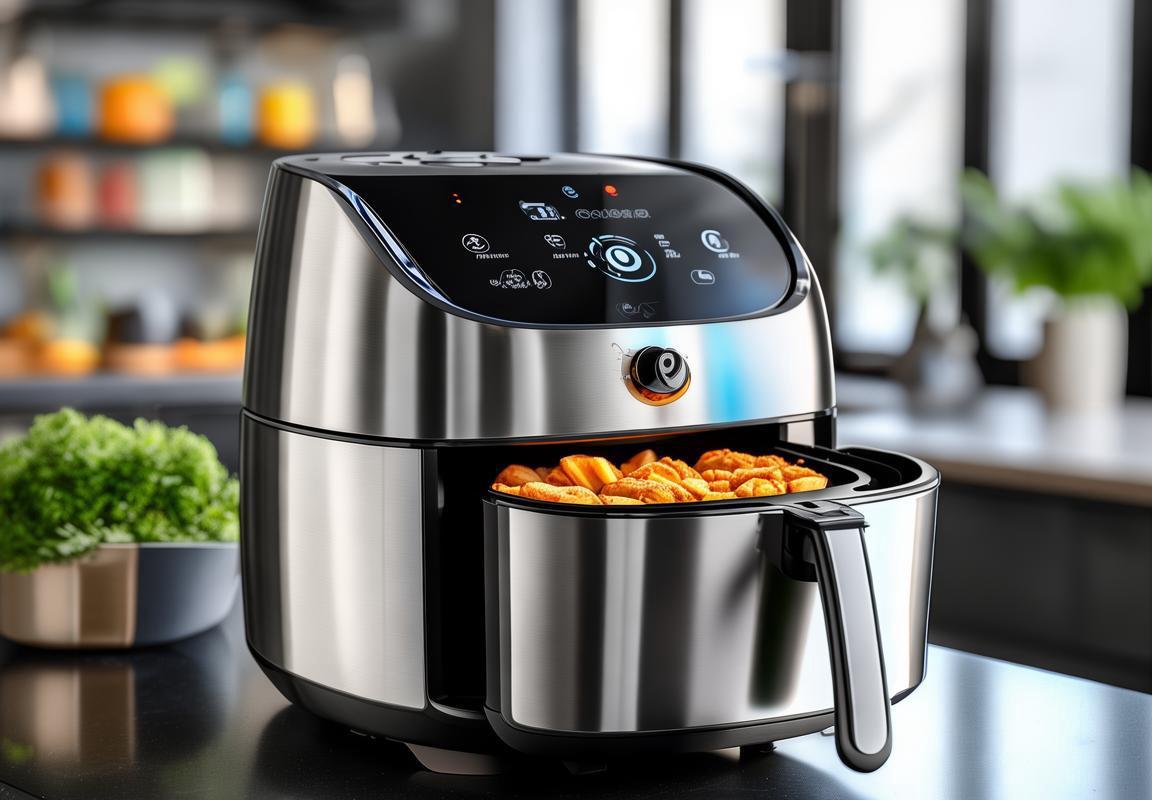
Benefits of Partnering with a Turnkey OEM for Air Fryer Production
Navigating the complexities of air fryer production can be daunting, but partnering with a turnkey Original Equipment Manufacturer (OEM) can streamline the process and offer a multitude of benefits. Here’s a closer look at the advantages of collaborating with a turnkey OEM for air fryer production.
Efficiency in Production and AssemblyA turnkey OEM specializes in the full production and assembly of air fryers. This means that from the design phase to the final product, the OEM handles every aspect. By doing so, they ensure that the production process is efficient, reducing the time and resources required to bring a new product to market. This streamlined approach allows for quick response to market demands and can significantly cut down on lead times.
Expertise in Design and EngineeringTurnkey OEMs are not just manufacturers; they are experts in the design and engineering of air fryers. They understand the latest trends, technological advancements, and safety standards, which are crucial for creating a product that stands out in a competitive market. Their in-house design teams can work closely with your brand to create a product that aligns with your vision and meets consumer expectations.
Quality Control and ComplianceOne of the primary benefits of working with a turnkey OEM is the stringent quality control they maintain. These manufacturers adhere to industry standards and often have their own quality assurance protocols, ensuring that every air fryer they produce meets or exceeds the required specifications. Additionally, turnkey OEMs are adept at navigating regulatory hurdles, such as obtaining UL certification, which is essential for consumer trust and market access.
Customization and FlexibilityA turnkey OEM can offer a high degree of customization, allowing your brand to differentiate itself in the market. Whether it’s a unique design, specific features, or branding elements, the OEM can tailor the air fryer to your brand’s identity. This flexibility is particularly valuable when targeting niche markets or launching limited edition products.
Cost-Effective SolutionsPartnering with a turnkey OEM can lead to significant cost savings. These manufacturers often have economies of scale, which means they can purchase components in bulk at lower costs. They also have efficient production lines that minimize waste and reduce labor expenses. This cost-effectiveness can be passed on to you, allowing you to offer competitive pricing without compromising on quality.
Quick Prototyping and IterationThe ability to quickly prototype and iterate is a game-changer in product development. Turnkey OEMs are equipped with the tools and expertise to create working models of your air fryer rapidly. This agility is invaluable for testing market reception and making adjustments before full-scale production begins.
Global Supply Chain ManagementWhen you work with a turnkey OEM, you gain access to their established global supply chain. This network can source materials from around the world, ensuring that you have access to the best quality components at competitive prices. It also simplifies logistics and distribution, making it easier to manage inventory and meet international shipping deadlines.
Focus on Core CompetenciesBy outsourcing the manufacturing process to a turnkey OEM, your brand can focus on its core competencies. This could include marketing, sales, customer service, or research and development. This strategic partnership allows you to leverage the OEM’s expertise in manufacturing, while your team can concentrate on what they do best.
Access to Cutting-Edge TechnologyTurnkey OEMs are often at the forefront of technological advancements in the air fryer industry. They invest in state-of-the-art equipment and processes, which can lead to innovative designs and features that keep your product ahead of the competition. Collaborating with such an OEM ensures that your air fryer benefits from the latest technology and design trends.
Scalability for GrowthAs your brand grows, so does the demand for your products. A turnkey OEM can scale production to meet increasing demand without disrupting your operations. This scalability is crucial for maintaining product availability and customer satisfaction, especially during peak sales seasons or when launching new product lines.
By choosing to partner with a turnkey OEM for air fryer production, you’re not just getting a manufacturer; you’re gaining a strategic ally that can help your brand navigate the challenges of the market. From design and engineering to production and distribution, the benefits of this partnership are extensive and can provide a solid foundation for your brand’s success.
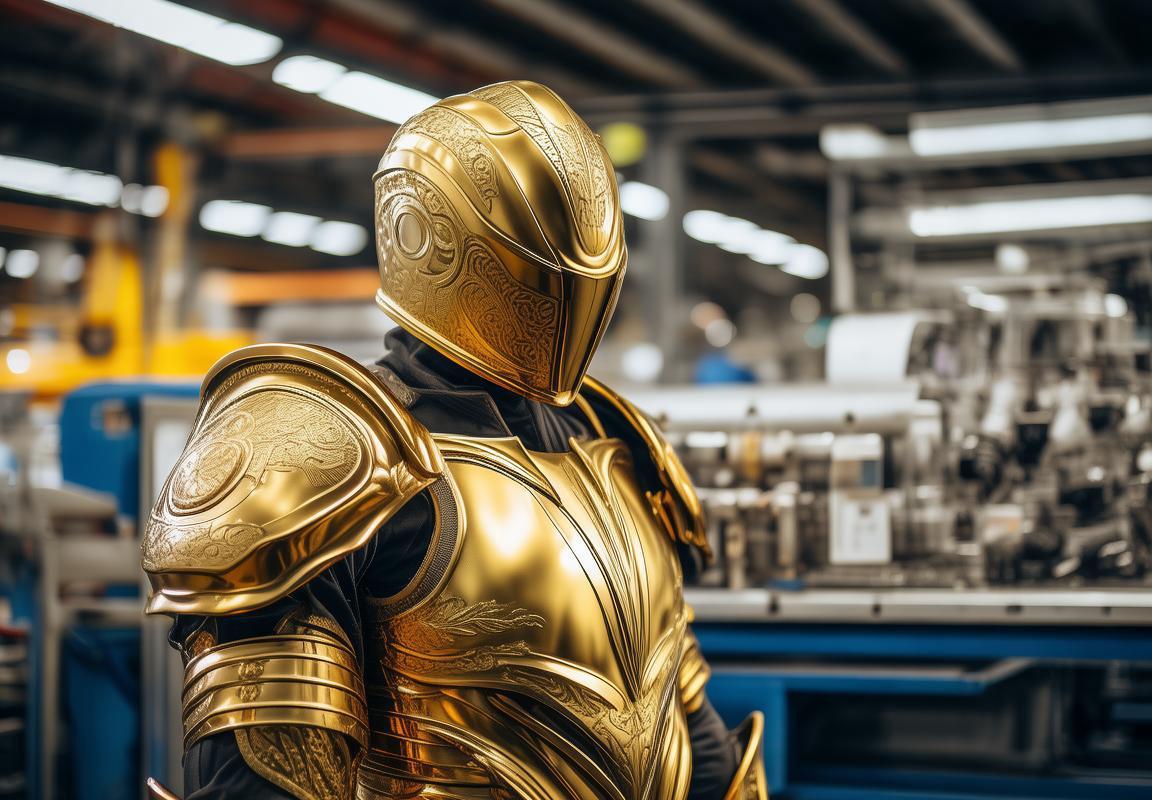
Case Study: A Successful Turnkey Air Fryer Project
In a bustling industrial park, nestled among rows of gleaming factories, there’s a story of innovation and collaboration that stands out. It’s a tale of a small startup that turned to a turnkey Original Equipment Manufacturer (OEM) to bring a groundbreaking air fryer to market. This case study highlights the journey and the triumphs of the project, showcasing the potential of a turnkey partnership in the air fryer market.
The startup, let’s call it “GreenGlow Innovations,” had a vision: to create an air fryer that was not only efficient and healthy but also easy to use and aesthetically pleasing. They had the concept, the design, and the passion, but they lacked the manufacturing expertise and resources to bring their product to life. That’s when they approached a reputable turnkey OEM, “FryTech Solutions,” known for its ability to turn ideas into reality.
FryTech Solutions took on the challenge with enthusiasm. They started by thoroughly reviewing the startup’s design specifications and conducting market research to ensure the air fryer would meet the demands and expectations of consumers. The project involved a series of intricate steps, each critical to the final product’s success.
The first phase was prototyping. FryTech’s engineering team meticulously crafted a prototype that mirrored the startup’s vision. It was a collaborative effort, with the GreenGlow Innovations team providing input based on their deep understanding of consumer needs and FryTech’s team offering their expertise in engineering and manufacturing.
The prototype was then tested for performance, safety, and energy efficiency. This phase was crucial, as it determined whether the air fryer would perform as expected and meet the stringent safety standards required for market entry. The team worked tirelessly, iterating on the design, improving the heating elements, and optimizing the airflow to ensure the best possible cooking experience.
With the prototype finalized and deemed ready for production, FryTech moved on to the manufacturing process. They sourced high-quality components, ensuring that every part met the startup’s standards for durability and reliability. The assembly line was set up with precision, with each step carefully monitored to maintain consistency and quality.
Once the manufacturing phase was complete, the air fryers were subjected to rigorous quality control checks. FryTech’s quality assurance team meticulously inspected each unit, testing for any defects or inconsistencies. This was not just a standard quality check; it was a testament to the company’s commitment to delivering a product that would earn the trust of consumers.
The air fryer was then prepared for its debut. FryTech handled the packaging design, branding, and labeling, ensuring that the product would not only function well but also appeal to consumers visually. They even assisted with setting up a distribution network, ensuring that the product would reach the right hands at the right time.
The launch was a resounding success. The air fryer, now named “EcoBlast,” was received with enthusiasm by both consumers and critics alike. Its ability to cook with minimal oil while maintaining flavor and texture was a game-changer. The GreenGlow Innovations team was thrilled, as was FryTech, which had successfully turned a promising idea into a market-ready product.
The project’s success can be attributed to several factors. First, the collaborative approach between the startup and the OEM was key. The startup’s deep understanding of the market and consumer needs complemented FryTech’s technical and manufacturing expertise. Second, the attention to detail during each phase of the project, from prototyping to quality control, was unwavering. And finally, the trust and transparency between the two parties allowed for a smooth and efficient workflow.
This case study of the EcoBlast air fryer project demonstrates the benefits of partnering with a turnkey OEM. For startups and small businesses, the advantages are clear:
- Expertise: Turnkey OEMs bring years of experience in design, engineering, and manufacturing. This expertise can be invaluable, especially when resources are limited.
- Cost-Effectiveness: Outsourcing manufacturing to a turnkey OEM can significantly reduce costs associated with setting up and maintaining a production facility.
- Speed to Market: The streamlined process offered by turnkey OEMs can speed up the time it takes to bring a product to market.
- Quality Assurance: With a turnkey OEM, quality control is built into every stage of the process, ensuring that the final product meets the highest standards.
- Scalability: As demand grows, turnkey OEMs can scale production to meet increased orders without the startup having to invest in additional infrastructure.
The EcoBlast air fryer project is just one example of how a turnkey OEM can transform a promising concept into a successful product. It’s a story of innovation, partnership, and the power of collaboration in the dynamic world of air fryer production.
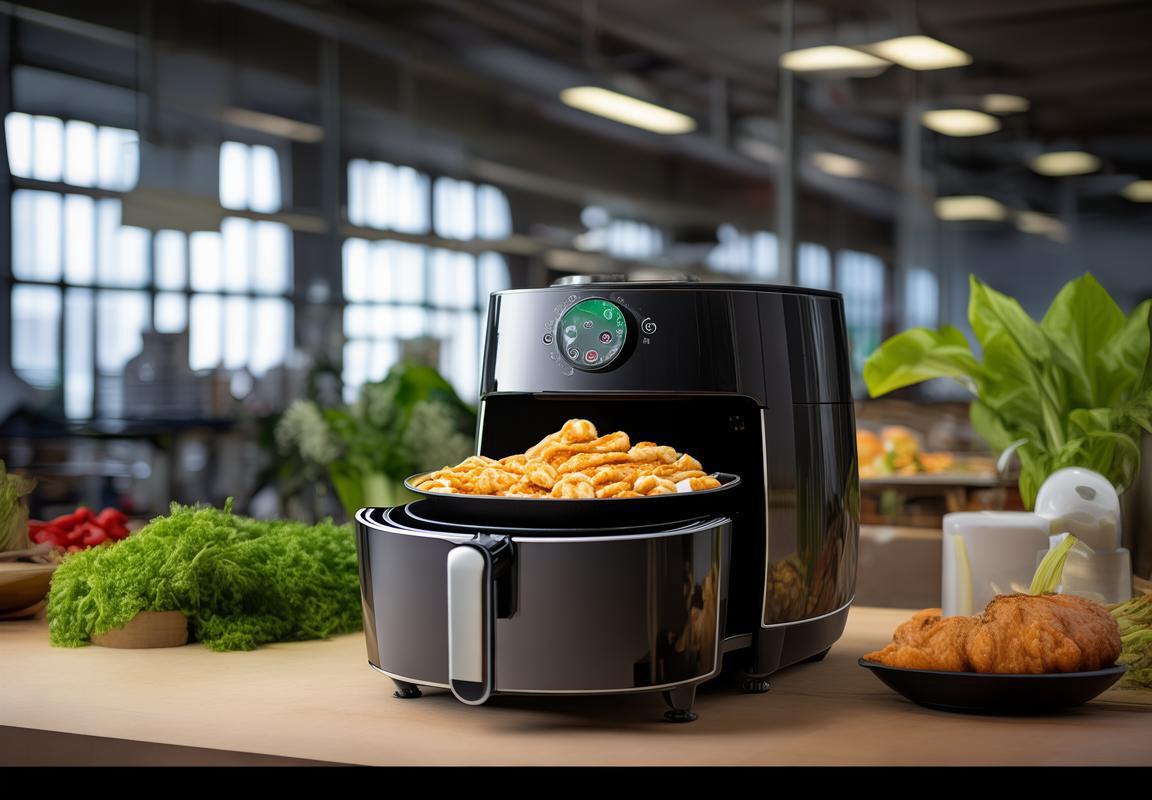
The Process of Achieving UL Certification for Air Fryers
Understanding the UL Certification process for air fryers is a meticulous journey that combines safety, compliance, and quality assurance. Here’s a breakdown of the process:
In the realm of electrical appliances, the presence of a UL (Underwriters Laboratories) certification is akin to a gold standard. This certification signifies that the product meets stringent safety requirements and has passed rigorous testing. When it comes to air fryers, achieving UL certification involves several critical steps.
To start, the air fryer manufacturer must select a reputable testing laboratory that is authorized by UL to conduct the necessary evaluations. This lab will serve as the cornerstone of the certification process, ensuring that every aspect of the air fryer’s design, components, and manufacturing process aligns with UL’s safety standards.
Once the lab is chosen, the manufacturer must submit detailed technical documentation. This includes the air fryer’s electrical schematics, component lists, and manufacturing procedures. The documentation must be thorough and clear, as it provides the foundation for the subsequent testing phases.
The first phase of testing focuses on electrical safety. This includes assessing the appliance’s resistance to electrical shock, overheating, and electrical fires. The air fryer is subjected to various scenarios to simulate potential misuse and accidents, such as overloading the fryer or leaving it unattended while in use. The testing lab checks for any abnormal conditions, such as sparking, heat buildup, or arcing, which could pose a risk to the user.
Another critical aspect of the testing process involves mechanical safety. This includes examining the air fryer’s structure, materials, and assembly to ensure they are robust and do not pose a risk of injury. The lab may subject the air fryer to mechanical stress tests, such as dropping it from a certain height or subjecting it to extreme temperatures, to simulate harsh conditions that the product might encounter in a consumer’s home.
Energy efficiency is also a key factor in UL certification. The lab evaluates how much energy the air fryer consumes and whether it operates within the specified efficiency limits. This not only affects the environmental impact but also impacts the user’s energy bills, making it an important consideration for both manufacturers and consumers.
Fire safety is paramount, and the testing process includes assessing the air fryer’s flame resistance. This is particularly important as air fryers operate at high temperatures and use oil, which can ignite under certain conditions. The lab tests the air fryer’s ability to withstand fire exposure and ensure that it does not contribute to the spread of flames.
After the initial testing phases, the lab provides a report detailing any deviations from the safety standards. The manufacturer must address these issues before the final stage of certification. This often involves making design changes, modifying components, or adjusting manufacturing processes to meet the required safety specifications.
Once the air fryer passes all the tests and the manufacturer has rectified any issues, the product is ready for the final review. This review involves a comprehensive assessment of the product’s entire lifecycle, from design and manufacturing to the end-user experience. If the review is successful, the product is granted the UL certification.
The process of achieving UL certification for air fryers is not only about meeting safety standards but also about building consumer trust. With this certification, manufacturers can confidently market their products, knowing that they have passed one of the most rigorous safety evaluations in the industry. For consumers, the UL mark is a symbol of quality and reliability, assuring them that the product they are purchasing is safe to use and meets the highest safety standards.
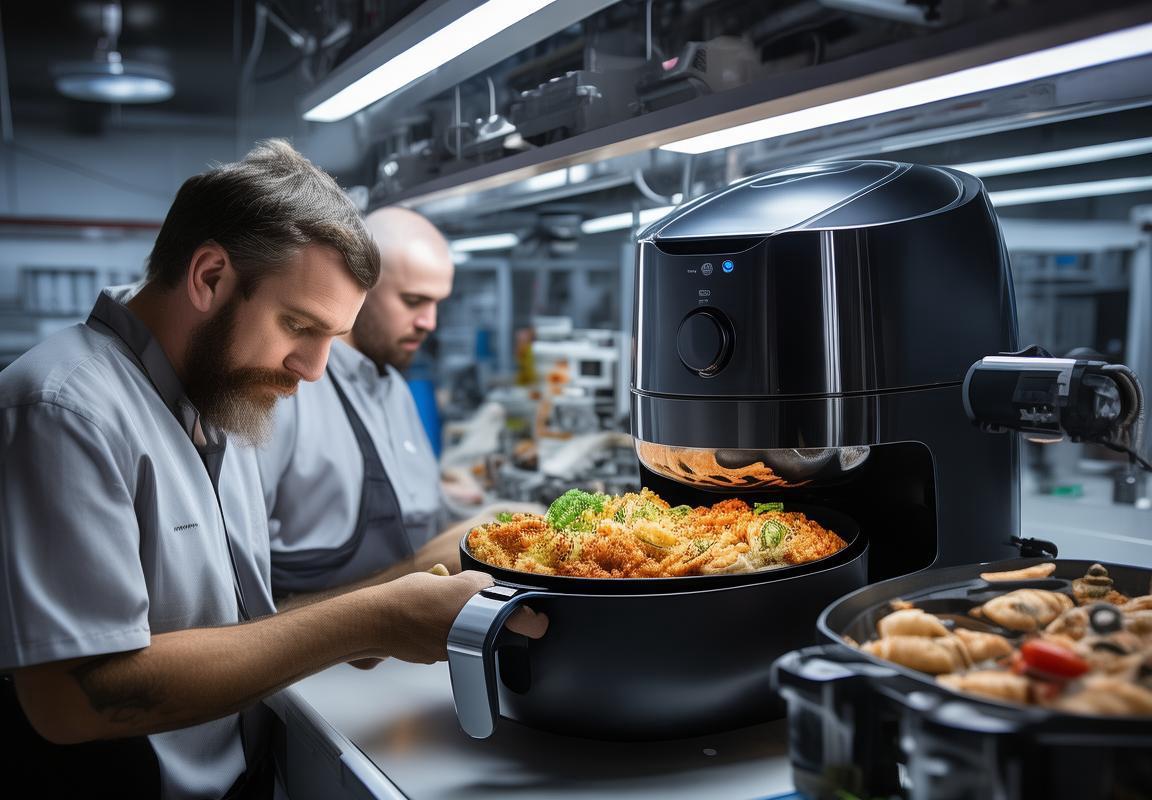
Conclusion: The Importance of Turnkey UL Certified Air Fryer OEMs in the Market
In the competitive landscape of the air fryer market, the presence of turnkey UL certified OEMs has become a hallmark of quality and trust. These OEMs play a pivotal role in ensuring that the products they manufacture meet stringent safety standards, which is crucial for consumer confidence. Let’s delve into the importance of these turnkey solutions and how they contribute to the market.
The integration of UL certification into the manufacturing process of air fryers is not just a regulatory requirement; it’s a commitment to excellence. Consumers today are more aware and concerned about the safety and efficiency of the appliances they use in their homes. A turnkey UL certified air fryer OEM ensures that every aspect of the product—from design to production—undergoes rigorous testing to meet these high standards.
By partnering with a turnkey OEM, companies can streamline their production process and focus on their core competencies. These OEMs are experts in their field, offering a full suite of services from design and engineering to manufacturing and quality control. This collaboration allows brands to enter the market with a product that is not only safe but also innovative and user-friendly.
The importance of turnkey UL certified air fryer OEMs is further underscored by the level of customization they provide. OEMs can adapt their production lines to meet the specific needs of their clients, whether it’s a unique design, specialized features, or compliance with international regulations. This flexibility ensures that the final product resonates with the target market and stands out in a crowded marketplace.
A significant benefit of working with a turnkey OEM is the access to cutting-edge technology and research. These OEMs often invest in the latest equipment and methodologies to stay ahead of the curve. This means that the air fryers they produce are not just compliant with UL standards but also incorporate the latest advancements in energy efficiency and cooking performance.
In the realm of compliance, turnkey UL certified air fryer OEMs take the burden off manufacturers by handling all the necessary certifications and approvals. This includes not only the UL certification but also other regional and international safety standards. By doing so, OEMs save their clients time and resources, allowing them to concentrate on marketing and sales strategies.
The quality assurance aspect of working with a turnkey OEM cannot be overstated. These companies have stringent quality control measures in place to ensure that every air fryer that leaves the factory meets the highest safety and performance criteria. This level of assurance is essential for brands looking to establish a reputation for reliability and durability.
Case in point, a well-known appliance brand partnered with a turnkey UL certified air fryer OEM to develop a line of air fryers that were not only safe but also environmentally friendly. The OEM’s expertise in sustainable materials and energy-efficient designs resulted in a product that appealed to eco-conscious consumers while meeting all necessary safety standards.
In terms of market positioning, turnkey UL certified air fryer OEMs offer a significant advantage. They help brands establish credibility by ensuring that their products are free from defects and meet the highest safety standards. This is particularly important in the aftermath of product recalls and safety concerns that have plagued the industry in recent years.
Another critical aspect is the scalability offered by turnkey OEMs. As demand for air fryers fluctuates, these OEMs can adjust production levels accordingly, ensuring that clients can meet market demands without overstocking or underproducing. This agility is essential for businesses looking to stay competitive and responsive to market trends.
From a financial perspective, turnkey OEMs can provide cost savings through economies of scale. By centralizing production, they can reduce overhead costs and pass these savings on to their clients. This cost-effectiveness is a significant draw for businesses that are looking to enter the air fryer market or expand their product lines.
In conclusion, the importance of turnkey UL certified air fryer OEMs in the market cannot be overstated. They offer a comprehensive solution that encompasses safety, quality, customization, technology, compliance, and cost-effectiveness. By partnering with these OEMs, brands can confidently enter and thrive in the competitive air fryer market, knowing that their products are not just compliant but also exceptional in every aspect.